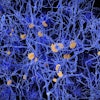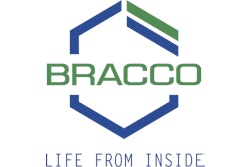The U.S. Food and Drug Administration (FDA) today announced that it is updating the warning labels required on three gadolinium-based MRI contrast agents sold in the U.S. due to the risk of nephrogenic systemic fibrosis.
The FDA said that three agents -- Magnevist, Omniscan, and Optimark -- would be required to carry labels stating that they are "inappropriate for use among patients with acute kidney injury or chronic severe kidney disease." The labels will emphasize the importance of screening patients to detect kidney dysfunction before MRI contrast administration.
Magnevist is sold by Bayer HealthCare Pharmaceuticals of Wayne, NJ; Omniscan is marketed by GE Healthcare of Chalfont St. Giles, U.K.; and Optimark is sold by Covidien of Dublin, Ireland.
The FDA in 2007 required that gadolinium-based contrast agents carry black box warning labels indicating that patients who receive the products are at risk of developing NSF. The labeling applied to the five MRI contrast agents sold on the U.S. market at the time, which included the above three agents as well as the MultiHance and ProHance products sold by Bracco Diagnostics of Princeton, NJ. In today's announcement, the FDA did not address whether it was changing the warning labels required of the Bracco products, nor of the other MRI contrast products approved since then, which include Eovist (Bayer) and Ablavar (Lantheus Medical Imaging, North Billerica, MA).
The FDA said that its review of the safety of the most widely used gadolinium-based contrast agents "determined that Magnevist, Omniscan, and Optimark are associated with a greater risk than other [gadolinium-based contrast agents] for NSF in certain patients with kidney disease." In addition, data suggest that NSF may follow the administration of any gadolinium-based contrast agent. The agency continues to evaluate the safety of each MRI contrast agent to better estimate its NSF risks.
"The FDA is requiring these labeling changes to enhance the safe use of gadolinium-based contrast agents, including avoidance of certain agents among patients at highest risk for nephrogenic systemic fibrosis," said Rafel (Dwaine) Rieves, MD, director of the division of medical imaging products in the FDA's Center for Drug Evaluation and Research.
The FDA recommends that healthcare professionals:
- Estimate kidney function through laboratory testing for patients at risk for chronically reduced kidney function.
- Avoid use of gadolinium-based contrast in patients suspected or known to have impaired drug elimination, unless the imaging is essential and not available without contrast.
- Monitor for signs and symptoms of NSF if gadolinium contrast is administered to a patient with acute kidney injury or chronic, severe kidney disease.
- Administer a gadolinium contrast agent only once during an imaging session.
Related Reading
ACR tackles NSF risk in new gadolinium MRI contrast guidance, June 17, 2010
GE settles NSF case with Calif. woman, March 25, 2010
MGH study: Adverse reactions to gadolinium contrast are rare, January 22, 2010
Italian researchers cut gadolinium dose -- as well as NSF risk, January 21, 2010
FDA panel: NSF incidence falls with gadolinium restrictions, December 9, 2009
Copyright © 2010 AuntMinnie.com


.fFmgij6Hin.png?auto=compress%2Cformat&fit=crop&h=100&q=70&w=100)





.fFmgij6Hin.png?auto=compress%2Cformat&fit=crop&h=167&q=70&w=250)











